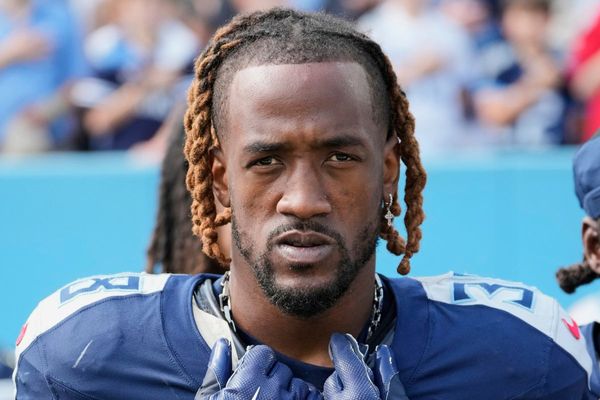Rupturing his Achilles tendon and turning 30 last August may have allowed some time for Kevin Feely to reflect on his career choices.
It was seven years since he had quit playing professional soccer after spells at Bohemians, Charlton and Newport County, along with loan stints at a couple of other English clubs, favouring Gaelic football with Athy and Kildare instead.
It hasn’t exactly been a glory-laden period since despite the promise that Kildare have shown at various stages over the years with a step forward often followed swiftly by two in the opposite direction.
A career in the lower leagues in England or the League of Ireland, similar to that of his younger brother, Rory, currently on the books of Barrow AFC, would surely have been accessible to Feely, but he measures his choices in terms of enjoyment, not medals and contracts.
Moreover, with some help from the GPA, he’s established his own business, Kevin Feely Athletic Therapy, while also lecturing in that field in DCU.
“I’ve never looked back and regretted that decision regardless of how well things have gone personally or collectively in GAA,” he says.
“The rationale behind the decision was that I found it too hard to maintain an ok standard of soccer, if that makes sense. It was real hard work just to be ok at it, whereas football was that little bit more enjoyable.
“I just said I’ll gain an awful lot more from football than I did from soccer so it came a lot more down to what I felt was my passion and where my enjoyment came from as opposed to ambitions and goals I had in terms of winning things.
“Obviously there was huge ambition and I did and do genuinely think that there’s potential for Kildare to win things but it wouldn’t have been the deciding factor at the time and that’s probably why I don’t really regret any decision I made in that regard.”
As for the injury, he made a remarkably quick recovery to feature for Kildare in a turbulent League campaign this year, something for which he is thankful to Johnny McKenna in the Santry Sports Clinic for.
Two wins at the back end of the League saved Kildare from relegation to Division Three and the virtual certainty of Tailteann Cup football this summer, but Clare’s recent win over Cork in particular means that that danger has still not been averted as they face Wicklow in Sunday’s Leinster quarter-final.
It’s put to Feely that playing in the second tier competition was something that visited trepidation on the camp.
“Trepidation is the word. I know there was a lot of people who were suggesting that it would be a good thing but from our own perspective the thought of it was pretty brutal given where we were last year.
“We were hoping it wasn’t something that we hoped we’d end up in but the other side of that is it made us focus hugely on our last few League games. It put a much bigger importance on them.”
Wherever they end up, a series of games that is frenetic by inter-county standards awaits with the new condensed season but, given his broad sporting background, Feely is somewhat puzzled by the consternation that surrounds the new schedule.
“In comparison to other sports, we’re probably still on the low side of things in terms of matches played in a season.
“Personally I think it’s a brilliant thing. I think the more matches you get played during that six-month block the better. I don’t see any reason really why GAA players can’t become accustomed to playing week on week.”
Comparing a high level soccer match to Gaelic football, Feely cites “a little more bumps and bruises” from the latter as the main difference in terms of toll on the body.
“You feel like your upper body has had a bit more contact but recovery time after a game, I feel, is similar enough.
“The amount of time it was before you felt fresh again was the same after a high level soccer match as it was after a top level GAA match. I don’t see a huge difference personally.
“In terms of distance covered and high intensity and all that, soccer and GAA compare quite well.”
The most obvious difference is that professional players have more time for recovery but Feely counters: “That’s just a matter then of reducing the training load rather than reducing the match load.”
He adds: “I think the sooner we accept that we should be going down that route and accept the players are capable of doing it, given the amount of training that we do, the better, and I think we’ll just adapt normally to it and I can’t see it becoming an issue.”
READ NEXT:
GAA fixtures this weekend and what matches are being shown on TV
Dara O Baoill on Paddy Carr's Donegal departure: 'It was a decision we had to make'
Over 90 percent of female inter-county GAA players receive no expenses, new GPA report reveals
Galway star David Burke has 'walking properly' target rather than Tribe comeback
Hyundai pay tribute to Craig Breen with Irish colour scheme at World Rally Championship
Get the latest sports headlines straight to your inbox by signing up for free email alerts







